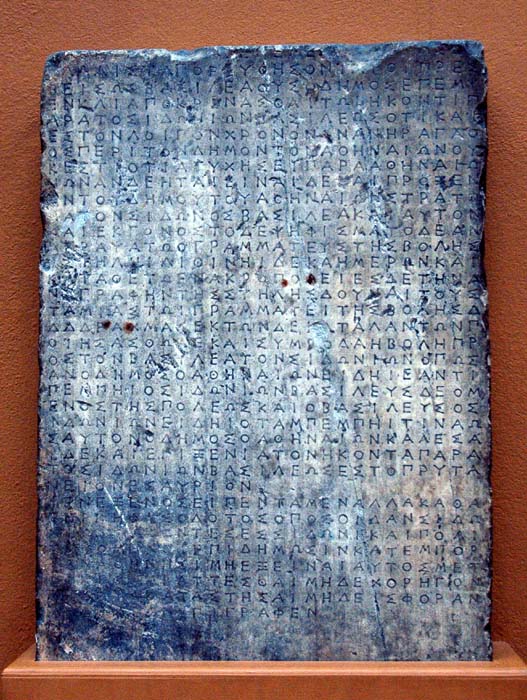
INSCRIPTION HONOURING A PHEONICIAN KING
A decree found on the Athenian Acropolis near the Parthenon, and set up by the
Athenians in c. 367 BC in order to grant privileges to Strato, king of Sidon and
his descendants; Strato had helped Athenian envoys on their way to the Persian
king. The sum of 30 drachmas was set aside to pay for the erection of the marble
stela; tokens were to be made (to authorize diplomatic envoys carrying
communications to and from Sidon); the king's ambassador was invited to dine in
the Prytaneum (public dining hall).
The last few lines provide for Sidonian citizens who have business at Athens not
to pay the metics tax, or the property tax, or undertake the otherwise
obligatory choregia (payment of the expenses of a dramatic festival). Phoenician
traders played an important role in the Mediterranean world at the time.
The inscription was acquired in Athens in 1751 by James Dawkins, on a journey in
the Levant ("most of the islands of the Archipelago, part of Greece in Europe,
the Asiatic and European coasts of the Hellespont, Propontis and Bosphorus, as
far as the Black Sea, most of the inland parts of Asia Minor, Syria, Phoenicia,
Palestine, and Egypt") which resulted in Robert Wood's The Ruins of Palmyra
(1753). Dawkins died in 1757, and his collection of inscriptions was presented
to the University by his brother Henry Dawkins.